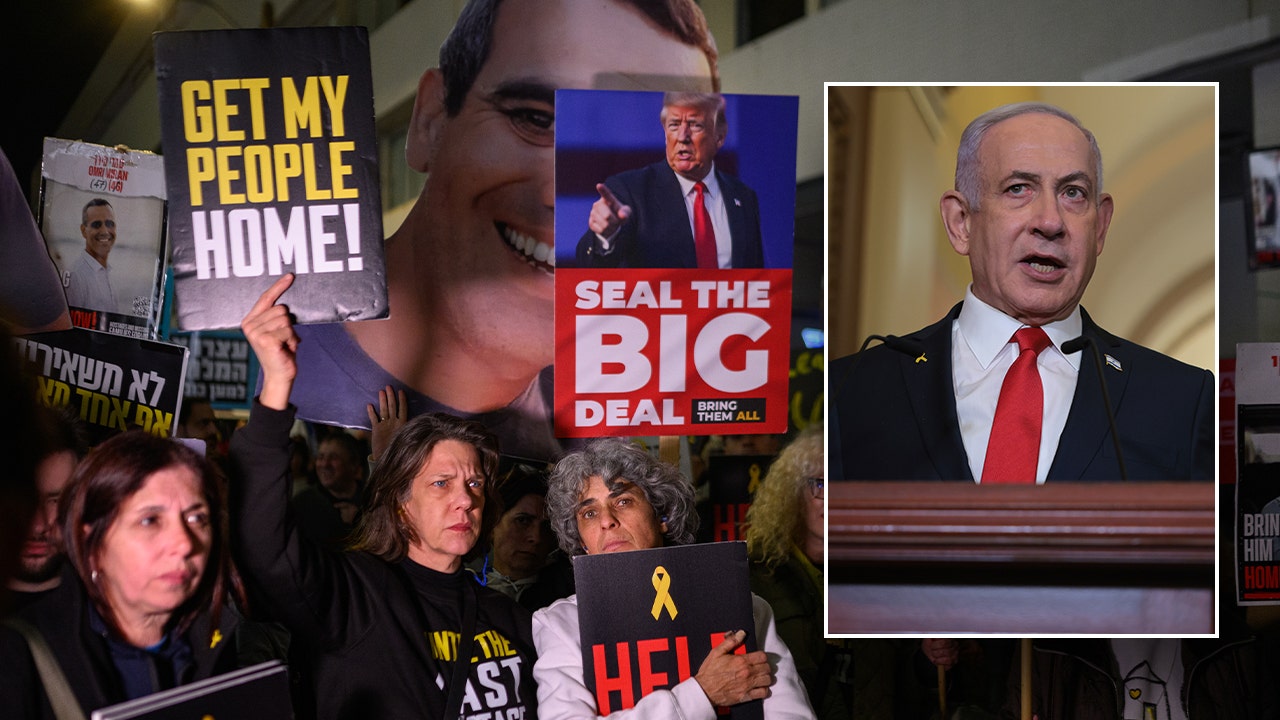World
Netanyahu: ‘No future’ in Gaza unless ‘Hamas destroyed’ amid concern for hostages

Netanyahu Warns of Gaza’s Peace Depending on Hamas’s Destruction Amid Hostage Concerns
Introduction: Netanyahu’s Stern Stance on Hamas and Gaza’s Future
In a bold and unyielding tone, Israeli Prime Minister Benjamin Netanyahu made it clear that the only path to peace in Gaza is through the destruction of Hamas. Speaking after high-stakes meetings with U.S. President Donald Trump and lawmakers in Washington, Netanyahu emphasized that the survival of Hamas poses a direct threat to peace in the region. "We’re not going to have a future for Gaza or for a future for peace in our part of the world if Hamas remains there," he asserted. Netanyahu also highlighted the importance of ensuring Iran never acquires nuclear weapons, a key point of discussion during his visit. However, his tough rhetoric has sparked concern among families of hostages still held by Hamas, who fear that such statements could jeopardize the safe return of their loved ones.
Trump’s Controversial Remarks and Their Impact on the Situation
Netanyahu’s comments came just days after President Trump made headlines with his own controversial remarks about Gaza. Trump suggested that the U.S. could "take over" the Gaza Strip and called for the mass displacement of millions of Palestinians living there. This geopolitical bombshell sent shockwaves across the region and beyond, with many interpreting it as a direct challenge to the delicate ceasefire agreements in place. While Netanyahu praised Trump’s "warm personal bond" and his "remarkable ideas," others, including hostage families, expressed alarm. Ruby Chen, the father of American-Israeli hostage Itay Chen, who was captured by Hamas on October 7, urged Netanyahu to focus on securing the release of all hostages before addressing broader geopolitical issues. "Netanyahu needs to keep the eye on the ball: priority is the release of all the hostages and then the other issues," Chen said.
Hostage Families’ Fears and the Human Toll of the Conflict
The concerns of hostage families like the Chens are deeply personal and urgent. As of now, only 13 of the 33 hostages slated for release in the first phase of the ceasefire have been freed. Among those still held are individuals whose fates remain uncertain, such as Shiri Bibas and her two young children, Ariel and Kfir. Hamas has claimed that they were killed in an Israeli airstrike, but their exact circumstances remain unverified. The emotional toll on families is immense, compounded by the constant uncertainty and fear that inflammatory rhetoric from leaders could derail the fragile process of securing their loved ones’ release. For example, Eli Sharabi, one of the hostages recently released, was taken from Kibbutz Beeri while his wife and daughters were killed in their safe room during the October 7 attack. His story, like those of others, underscores the devastating human cost of the conflict.
Hamas’s Delay in Hostage Releases and the Ceasefire Agreement
Hamas’s actions have only added to the anxiety. On Friday, the group delayed the release of names for the next round of hostages set to be freed under the ceasefire agreement. This move was widely seen as a violation of the terms of the deal and a sign of escalating tensions. Netanyahu’s office swiftly condemned the delay, calling it a "serious" and "violation" of the agreement. Despite the delay, Hamas eventually announced the release of three hostages: Eli Sharabi, Or Levy, and Ohad Ben Ami. Levy was taken from the Supernova music festival where his wife was killed, while Ben Ami was abducted alongside his wife, Raz, who was freed in November 2023. These releases, though welcomed, have done little to ease the concerns of families still waiting for news of their loved ones.
Netanyahu’s Meeting with Trump and the Path Forward
Netanyahu’s visit to Washington was also marked by speculation about a potential plan to end the war in Gaza. Reports suggested that Netanyahu presented Trump with a proposal that would involve Hamas relinquishing power and its leaders going into exile in exchange for a ceasefire. However, Netanyahu’s office denied these claims, leaving the details of their discussions shrouded in mystery. What is clear, however, is Netanyahu’s unwavering stance on Hamas. He made it evident that he believes the group’s destruction is a prerequisite for peace, a position that aligns with Trump’s tough rhetoric but risks alienating those who advocate for a more nuanced approach to the conflict.
Conclusion: A Delicate Balance Between Rhetoric and Reality
As the situation in Gaza continues to unfold, the interplay between political rhetoric and the realities on the ground remains a critical factor. While Netanyahu and Trump’s tough talk may resonate with some, it also risks undermining the fragile ceasefire agreements and hostage release processes. For families like the Chens, Bibases, and Sharabis, the stakes could not be higher. The coming days and weeks will be pivotal in determining whether the rhetoric of destruction can be balanced with the urgent need for diplomacy to secure the safe return of all hostages. As the international community watches closely, the challenge for leaders like Netanyahu and Trump will be to navigate this delicate balance without losing sight of the human lives at stake.